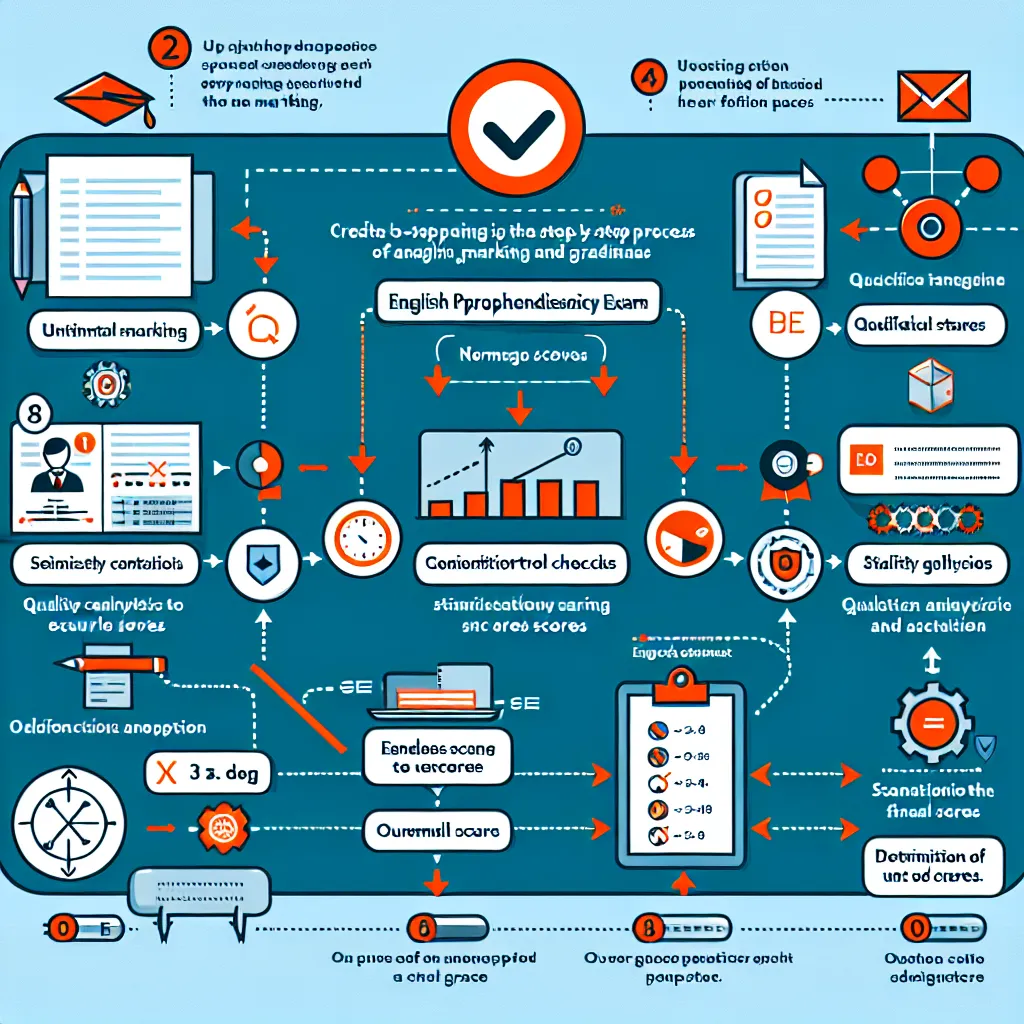Are you preparing for the Cambridge C1 Advanced exam and wondering what score you should aim for? As an experienced Cambridge Exams instructor and content creator at LearnEnglish.NET, I’m here to guide you through the scoring system and help you understand what constitutes a good score in this prestigious exam.
Understanding the Cambridge C1 Advanced Scoring System
The Cambridge C1 Advanced exam, formerly known as Certificate in Advanced English (CAE), is designed to assess your English language proficiency at an advanced level. To fully grasp what a good score means, it’s essential to understand how the exam is structured and scored.
Exam Structure and Scoring
The C1 Advanced exam consists of four papers:
- Reading and Use of English (40% of total score)
- Writing (20% of total score)
- Listening (20% of total score)
- Speaking (20% of total score)
Each paper is scored on a scale from 0 to 210. The overall score is calculated by averaging the scores from all four papers.
 Cambridge C1 Advanced Exam Structure
Cambridge C1 Advanced Exam Structure
Cambridge English Scale
The Cambridge English Scale is used to report results for Cambridge English Qualifications. For C1 Advanced, the scale ranges from 142 to 210. Here’s how the scores correspond to CEFR levels:
- 200-210: Grade A (C2 level)
- 193-199: Grade B (C1 level)
- 180-192: Grade C (C1 level)
- 160-179: Level B2
What is Considered a Good Score?
Now that we understand the scoring system, let’s explore what constitutes a good score in the Cambridge C1 Advanced exam.
Passing Score
To pass the C1 Advanced exam, you need to achieve a score of at least 180 on the Cambridge English Scale. This corresponds to a Grade C and confirms that you have reached the C1 level of the Common European Framework of Reference for Languages (CEFR).
Good Score Range
While passing is an achievement in itself, many test-takers aim for higher scores. Here’s a breakdown of what can be considered good scores:
- 180-192 (Grade C): This is a solid pass and demonstrates C1 level proficiency.
- 193-199 (Grade B): This range shows strong performance and advanced language skills.
- 200-210 (Grade A): This is an exceptional score, indicating language abilities approaching or at the C2 level.
Aiming for Excellence
If you’re targeting top universities or prestigious job positions, aiming for a Grade B or A (193-210) is advisable. These scores not only demonstrate C1 level proficiency but also show that your English skills are approaching or at the C2 level, which can give you a competitive edge.
Factors Influencing Your Score
Several factors can impact your C1 Advanced score:
- Preparation time and quality
- Previous English language experience
- Familiarity with exam format and question types
- Stress management during the exam
- Time management skills
Tips for Achieving a Good Score
To maximize your chances of achieving a good score in C1 Advanced, consider the following tips:
- Start preparation early, ideally 3-6 months before the exam date.
- Use official Cambridge preparation materials and past papers.
- Focus on improving your weakest areas through targeted practice.
- Take timed practice tests to improve your time management skills.
- Work on expanding your vocabulary, especially in academic and professional contexts.
- Practice speaking English regularly, ideally with native speakers or advanced learners.
 Cambridge C1 Advanced Preparation Tips
Cambridge C1 Advanced Preparation Tips
Interpreting Your Score
When you receive your C1 Advanced results, you’ll get a Statement of Results that includes:
- Your overall score on the Cambridge English Scale
- A grade (A, B, C, or Level B2)
- Individual scores for each of the four skills (Reading, Writing, Listening, Speaking) and Use of English
Understanding these components will help you interpret your performance and identify areas for improvement if you plan to retake the exam.
[internal_links]
Next Steps After Receiving Your Score
Regardless of your score, here are some steps you can take after receiving your C1 Advanced results:
- If you achieved your target score, celebrate your success and consider how to maintain and further improve your English skills.
- If you didn’t achieve your desired score, analyze your performance in each section to identify areas for improvement.
- Consider retaking the exam if necessary, focusing on strengthening your weak points.
- Use your results to set new language learning goals, whether it’s advancing to C2 level or applying your skills in academic or professional settings.
Conclusion
A good score in Cambridge C1 Advanced is ultimately one that meets your personal or professional goals. While passing with a Grade C (180-192) demonstrates solid C1 level proficiency, aiming for a Grade B (193-199) or A (200-210) can set you apart and open up more opportunities. Remember, the journey to English proficiency doesn’t end with the exam – continue to practice and improve your skills to maintain and build upon your achievement.
Have you taken the C1 Advanced exam or are you preparing for it? Share your experiences and questions in the comments below, and let’s support each other in this language learning journey!




